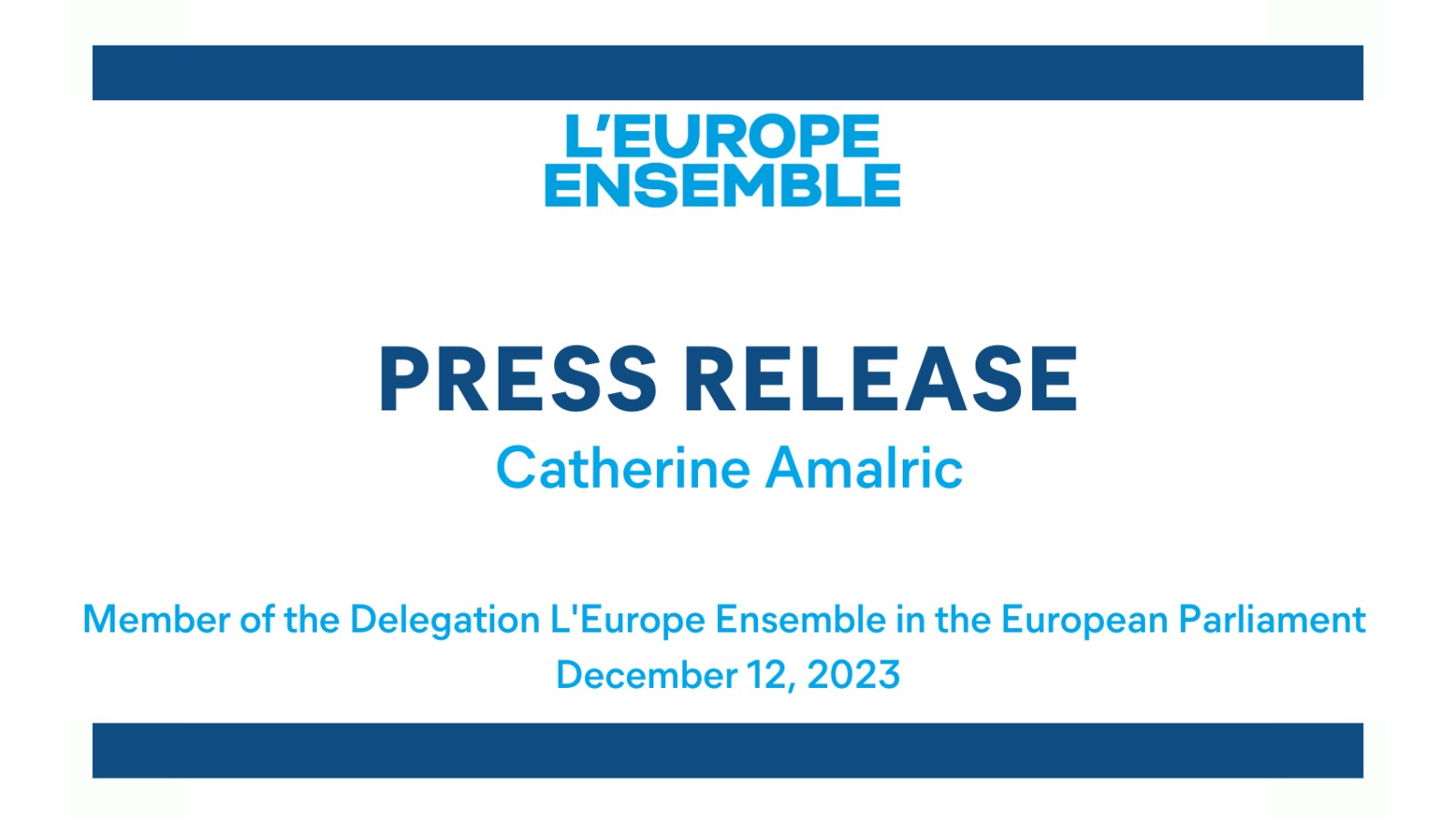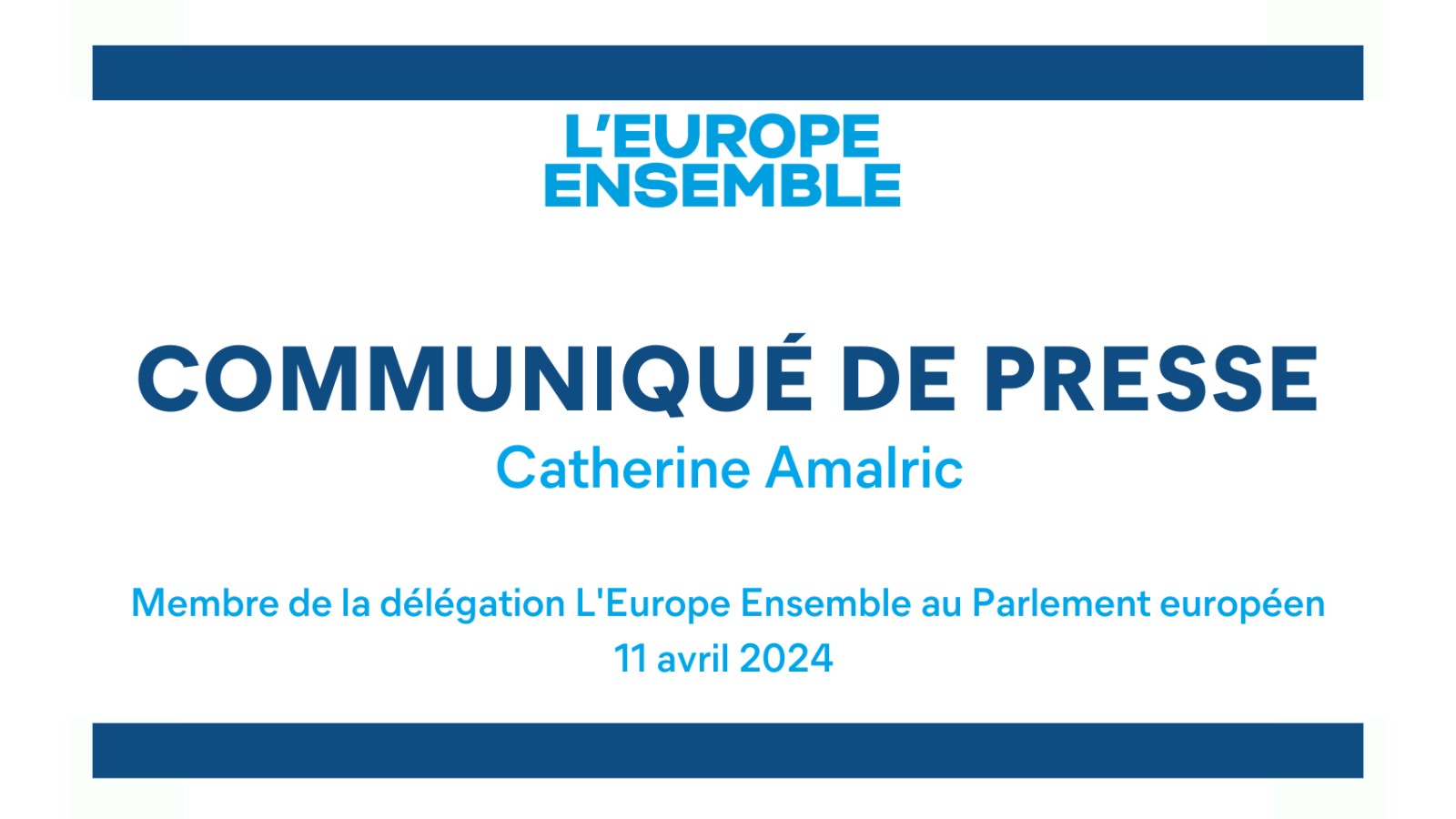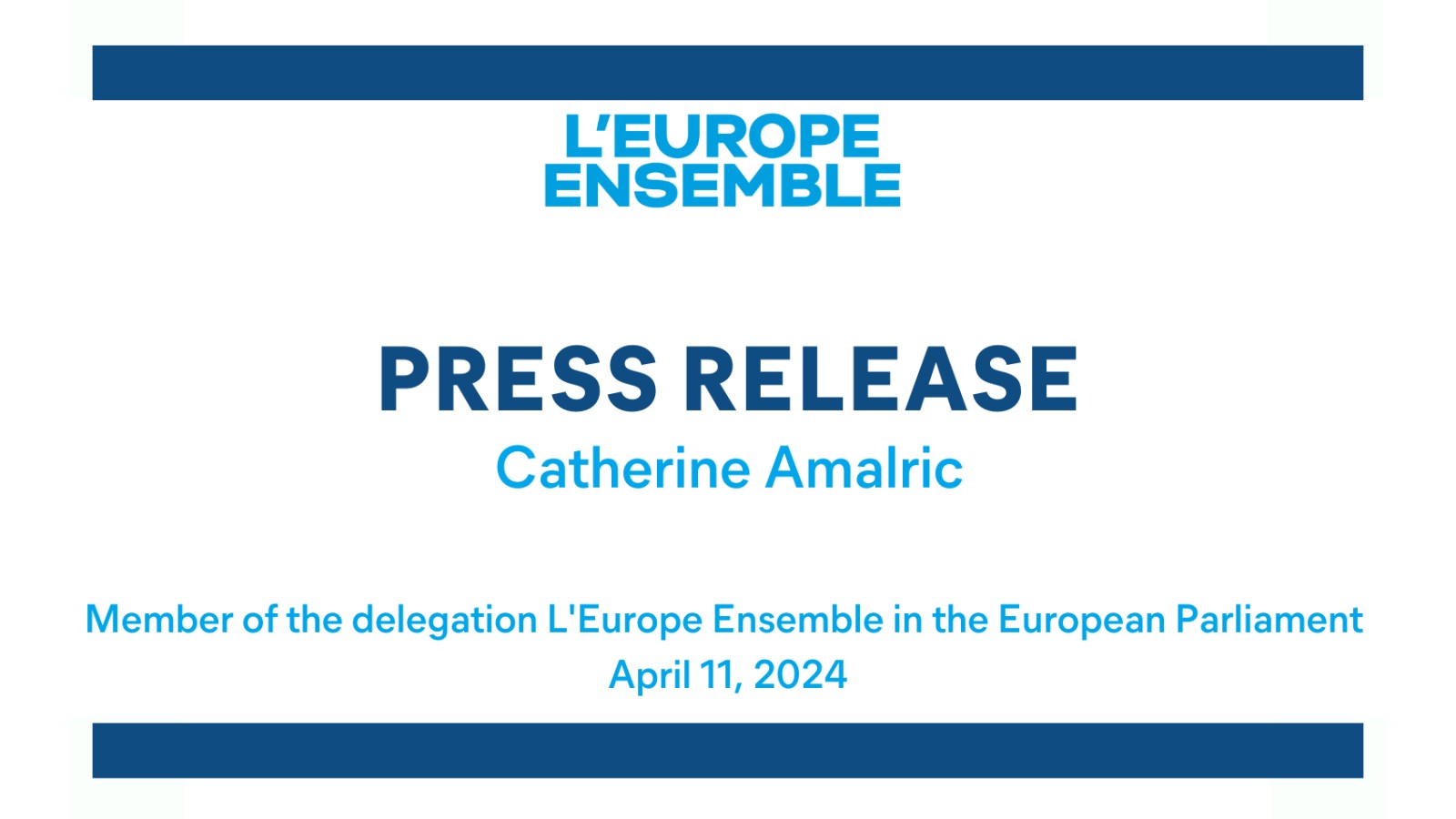At the end of August, Catherine Amalric started her mandate in the European Parliament, following the tragic death of Véronique Trillet-Lenoir. As a member of the Radical Party, a hospital pharmacist and a specialist in health issues, the MEP was keen to continue the battles and commitments of her predecessor in building a real European Health Union.
In the past few months, Catherine Amalric has become heavily involved in parliamentary work and has succeeded in obtaining key roles within the European Parliament in the development of European public health policies:
- She was appointed Coordinator, for Renew Europe, to the Subcommittee on Public Health: she’s responsible for guiding the centrist group's political position on issues under discussion, such as mental health and the fight against non-communicable diseases.
- By becoming her group's rapporteur on several texts:
- the pharmaceutical products’ directive, a key text in the revision of the European pharmaceutical legislation: she defends a pragmatic and ambitious position to guarantee affordable, effective and innovative medicines for all, by combating shortages more effectively;
- protecting workers' health: negotiations have recently been concluded to provide better protection for workers exposed to lead and toxic substances in the workplace;
- a gradual European ban on mercury, which is known to be harmful to health: the MEP supports a ban on mercury in dental fillings and in many everyday lamps from 2025;
- the supervision of the health and nutritional claims on foods: the aim of this text is to fight against false information on the supposed benefits of certain foods, which has not been scientifically verified, or the promotion on social networks (mainly by influencers) of food or protein supplements that may represent a danger.
Finally, Catherine Amalric is deeply involved in the implementation of the European Cancer Plan. As a specialist in cancer care and a member of the French National Cancer Institute’s health democracy committee, she advocates for the implementation of the right to be forgotten throughout the European Union, the promotion of a European status for carers and the strengthening of European innovation in the search for new treatments.
This work is far from over, and the MEP will continue to put her scientific expertise at the service of Europeans to consolidate a real Health Union that is more protective, more supportive and more sustainable.




